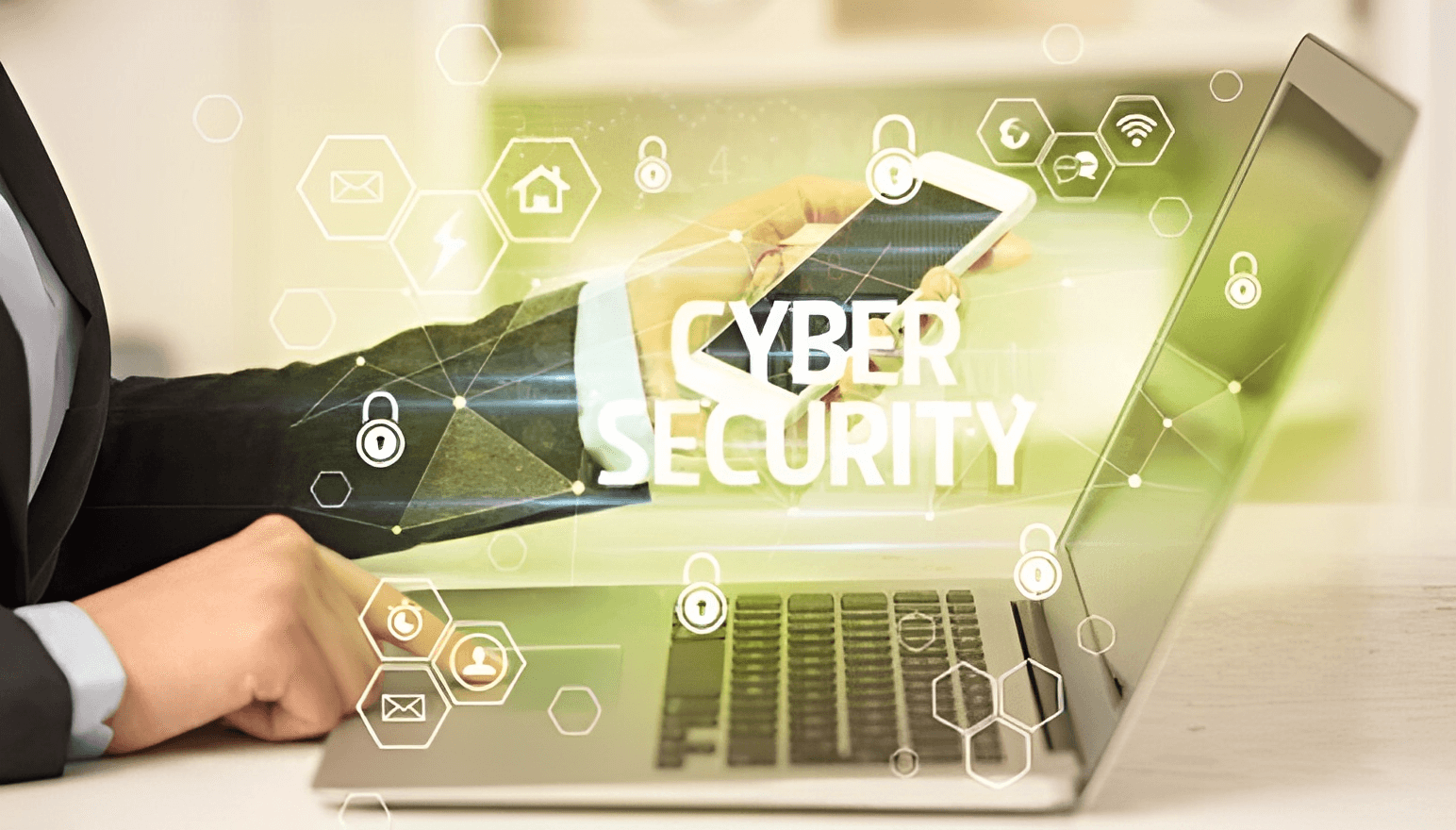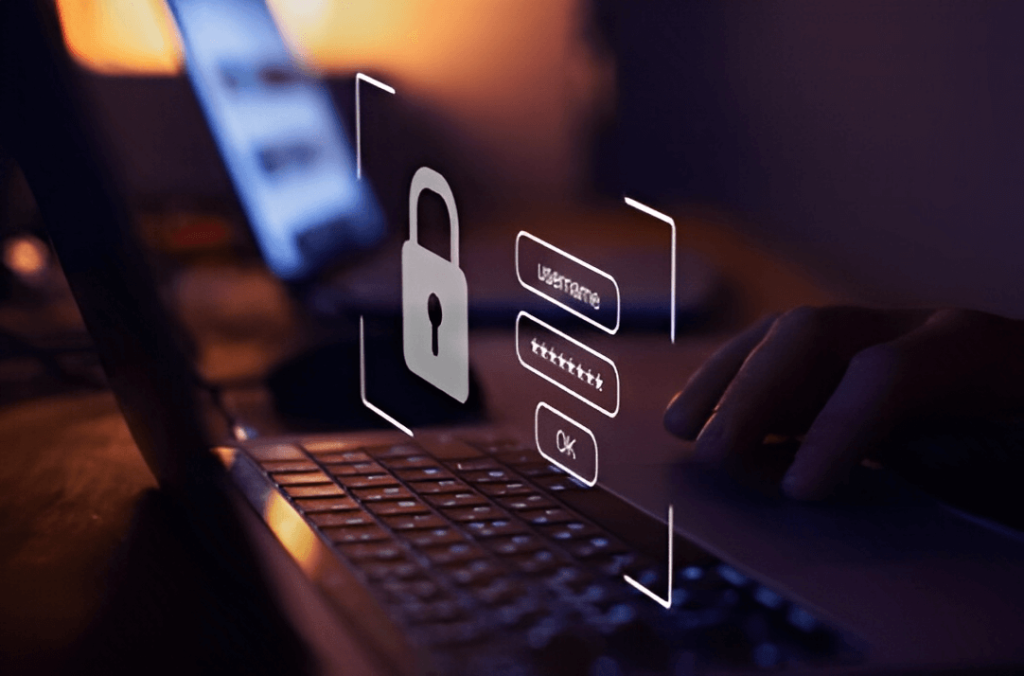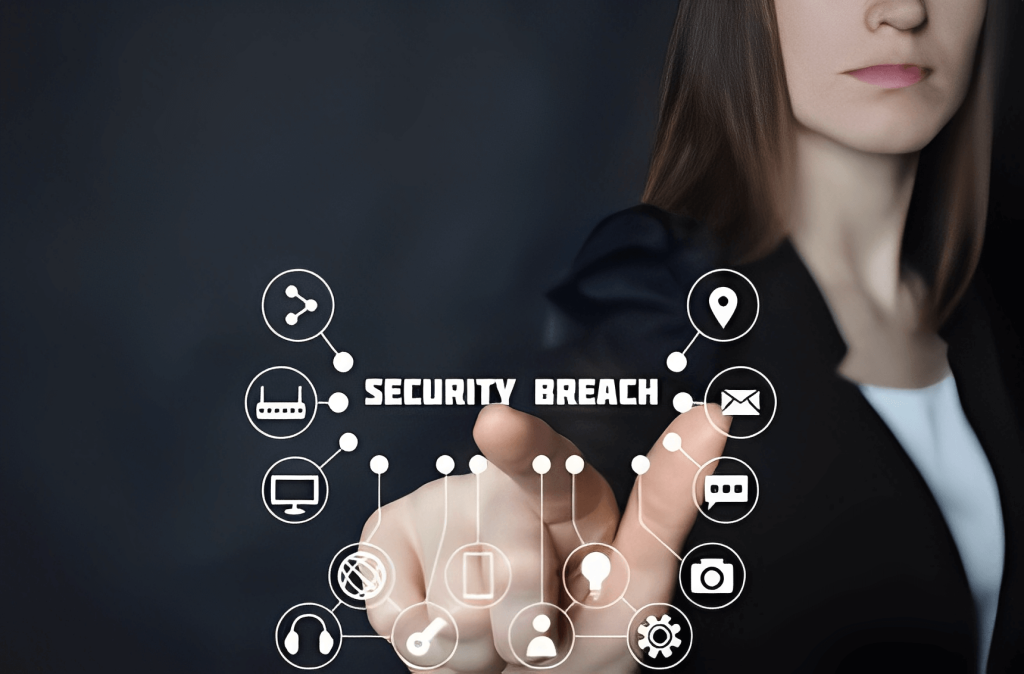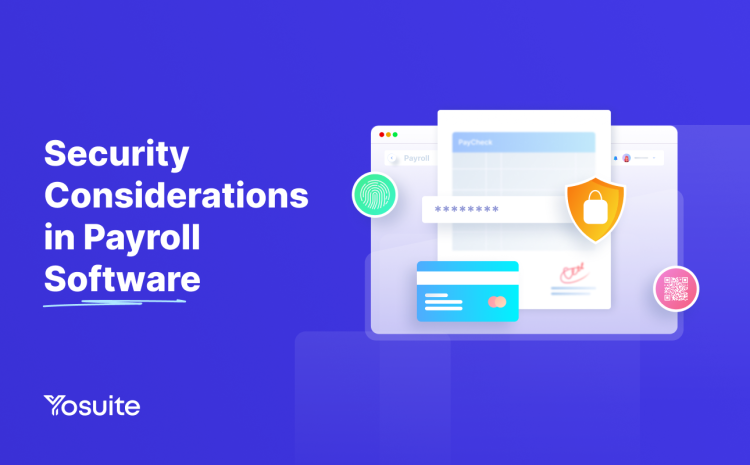The payroll system is one of the most sensitive parts of a company’s structure. It contains personal details such as;
👉 Names and addresses,
👉 Vital identification numbers such as;
- social security numbers,
- tax-related data,
- deductions,
- medical insurance information, and
- salary details
👉 Other regular compensation payments.
With this susceptible information, your payroll system requires utmost accuracy and confidentiality.
In this article, we will delve into the security considerations in payroll software that you should look at when choosing your software.
Table of Contents
Defining Payroll Software Security

With the possibility of a cybersecurity attack, ensuring the security of sensitive payroll data is paramount for businesses.
What is Payroll Security?

Payroll software security refers to the measures and protocols to safeguard payroll information from unauthorized access, data breaches, and other security threats. Payroll security measures typically include:
- User authentication
- Data encryption
- Regular software updates
- Auditing and monitoring
- Secure data storage
- Compliance with privacy regulations
Why is it important to keep payroll information confidential?

By prioritizing payroll security, organizations can mitigate the risks associated with data breaches, identity theft, fraudulent activities, and potential legal and financial repercussions.
Here is the list of the benefits of having payroll software with strong security:
👍Ensure the confidentiality of sensitive employee information. It will prevent unauthorized access, protecting individuals’ privacy.
👍It helps organizations comply with legal and regulatory requirements. These include tax laws, labor regulations, and data protection regulations; one example is the General Data Protection Regulation (GDPR).
👍Software that adheres to payroll confidentiality laws safeguards the integrity of payroll data. It will keep accuracy and reliability free from unauthorized modifications or tampering.
👍It builds trust and confidence among employees. Businesses assure employees of responsible and secure personal and financial information handling.
👍Prevent fraudulent activities reducing financial risks for both employees and organizations. These include identity theft, unauthorized changes to employee records, and unauthorized access to payroll records and funds.
What are the common security threats in payroll software?
Relying on payroll software with weak security can pause numerous data and financial threats. According to IBM’s report on data breach, 2022’s average global total cost of a data breach reached $4.35M, with a 2.59% increase from 2021’s record and about $9.44M in the United States.
It’s a very shocking and scary figure, right? You might be the next cybersecurity attack victim if your payroll system doesn’t have the capability to resist this threat.
In this section, we’ll talk about the security threats of payroll software, as it can be vulnerable to various threats. Understanding these risks is essential to implementing appropriate security measures.
Common security threats in payroll software include:
⚠️Unauthorized Access:
Unauthorized individuals gain access to payroll systems and sensitive employee information.
⚠️Data Breaches:
Breaches in security that result in the unauthorized disclosure or exposure of confidential payroll data. The first quarter of this year witnessed a significant decrease in leaked accounts, with only 41.6 million reported compared to the previous year.
⚠️Phishing Attacks:
It attempts to deceive employees into revealing sensitive information through fraudulent emails or websites. With an astonishing volume of approximately 3.4 billion spam emails dispatched daily, phishing is the prevailing type of cybercrime.
⚠️Malware and Ransomware:
Malicious software targets payroll systems, aiming to disrupt or compromise their operations. It often demands ransom payments for data retrieval. In 2021, the FBI received 3,729 complaints identified as ransomware with more than $49.2 million in adjusted losses.
⚠️Insider Threats:
It is the unauthorized access or misuse of payroll data by employees or internal personnel. Businesses incur an estimated $50 billion in annual losses due to employee theft, rising by 15% annually. According to the FBI, 60% of employees would steal if they knew they wouldn’t get caught. Another 10% will actively look for an opportunity to steal.
Security Considerations in Choosing Payroll Software
When selecting payroll software for your business, it is essential to assess the security features offered and the things that will ensure the strength of your software against threats. Here are some indispensable security considerations to keep in mind:
👉🏾Essential Security Features in Payroll Software
➡️User Roles and Access Control:
Cloud-based software stores data in servers which may not disclose the precise locations. Reputable vendors take extra measures to ensure data protection. It includes maintaining backups in many server locations for recovery and enhanced security. Check for a secure cloud-based payroll system with Role-Based Access Control (RBAC) in place. It enables companies to assign access and permissions based on roles. Preventing unauthorized access to payroll data is crucial for external parties and vendors.
➡️Encryption and Data Protection:
Payroll processes involve handling sensitive information about employees. These include personal details, bank information, salary figures, and personal account numbers (PAN). Choosing a secure, reputable vendor to protect your employees’ data is advisable.
Implementing encryption is a crucial aspect of any cloud-based solution. It restricts access to authorized users, maintaining the integrity of sensitive data.
Security measures like two-factor authentication (2FA) also provide an added protection layer during the login process. These security measures protect employees from personal information tampering and internal conflicts due to salary disparities. So, why is pay confidential?
➡️Data Protection Certifications and Audits:
When evaluating payroll service vendors, check for certifications. These certifications prove compliance with security regulations and data protection standards. These certifications state that the vendor meets strict criteria for data security. These also prove that it follows protocols to prevent breaches and ease recovery. Well-known certifications in this field include FedRAMP, SSAE18, and ISO 27001.
➡️Audit Trail Reports:
Your super administrator should always be able to track payroll activities. Payroll software with audit trail reports helps trace and investigate employee record modifications. It should be possible to generate these reports for a specified timeframe. It allows you to gather compelling evidence during audits.
➡️Regular Software Updates and Patches
Payroll software often includes a range of security features. It can leave organizations vulnerable to security threats and cyberattacks without regular updates. It is crucial to check for software updates to ensure the safety of payroll data.
The same principle applies to businesses that choose to outsource their payroll. Choose a cloud-based payroll solution to ensure it receives the latest security upgrades. It eliminates the need for manual updates associated with self-hosted software solutions.
👉🏾Secure Data Handling in Payroll Software
➡️Data Security Protocols
When choosing a cloud-based payroll software, you trust the vendor with your data. Assessing data security protocols is crucial to safeguard your information. Verify data segregation from vendor’s data and other clients’ data using control mechanisms. Segregation prevents data compromise in case of vendor breach. Essential features include backups, firewalls, timeouts, and 24/7 monitoring.
➡️Backup and Disaster Recovery Measures
Backup and disaster recovery measures are vital. The vendor should have dependable backups to maintain data availability and integrity. Backups ensure quick restoration and uninterrupted operations in case of data loss or system failures.
➡️24/7 Monitoring and Incident Response
Continuous monitoring and incident response are crucial. The vendor must identify suspicious activities in the system infrastructure and network.
👉🏾Employee Confidentiality and Compliance Considerations
➡️Employee Confidentiality
Employee data security and confidentiality are vital in payroll software. Protecting sensitive data like Social Security numbers is essential for employee security. Unauthorized access to private information can result in misuse for illegal purposes.
Additionally, strict payroll information confidentiality promotes a harmonious work environment. It is the main reason why pay is confidential. It ensures fairness and discretion in compensation and benefits for all employees.
➡️Personally Identifiable Information (PII) Protection
PII includes identifiable information like names, social security numbers, addresses, and biometric data. Choose secure payroll software that safeguards PII from unauthorized use or disclosure. It includes encrypting sensitive data, regular security audits, and access controls for PII.
➡️Federal and State Laws Protecting PPI
Laws regulate the collection, use, and transfer of personal data. It includes employees, independent contractors, and non-employees at both federal and state levels. Vital federal laws governing data protection include:
- Fair Credit Reporting Act (FCRA) for consumer reports
- Federal Trade Commission Act prohibiting unfair practices
- Genetic Information Nondiscrimination Act (GINA) for genetic information
- Health Insurance Portability and Accountability Act (HIPAA) for medical and health information.
Additionally, most states have enacted privacy legislation. It often requires notification of security breaches involving personal information. Employers can generally transfer employee data within the boundaries of these laws.
👉🏾Secure Integration with Other Systems
➡️APIs and third-party integrations
Testing the vendor’s provided APIs is crucial when assessing payroll software for secure integration. APIs should have security measures like authentication and authorization for system access control. Consider the vendor’s track record in supporting third-party integrations. Also, assess their commitment to maintaining security and integrity.
➡️Secure Transmission of Data
Data transmission between software is essential to ensure confidentiality and integrity. Encryption technologies like SSL/TLS protocols establish secure communication channels. Verify encryption methods for data protection during transit, especially for external system integration and cloud-based services.
Final Thought on Payroll Data Security
With so many types of payroll software available in the market, security should be a top priority when selecting payroll software for your business. Safeguarding sensitive employee data is crucial to maintain trust and protect your organization from potential cyber threats. Consider encryption, multi-factor authentication, vulnerability management, and the provider’s reputation.
Throughout this article, we have explored several key security considerations that should guide your decision-making in choosing your payroll software. By considering these things, you can ensure the security of your payroll processing and strengthen your payroll management policy.

Leave a Reply